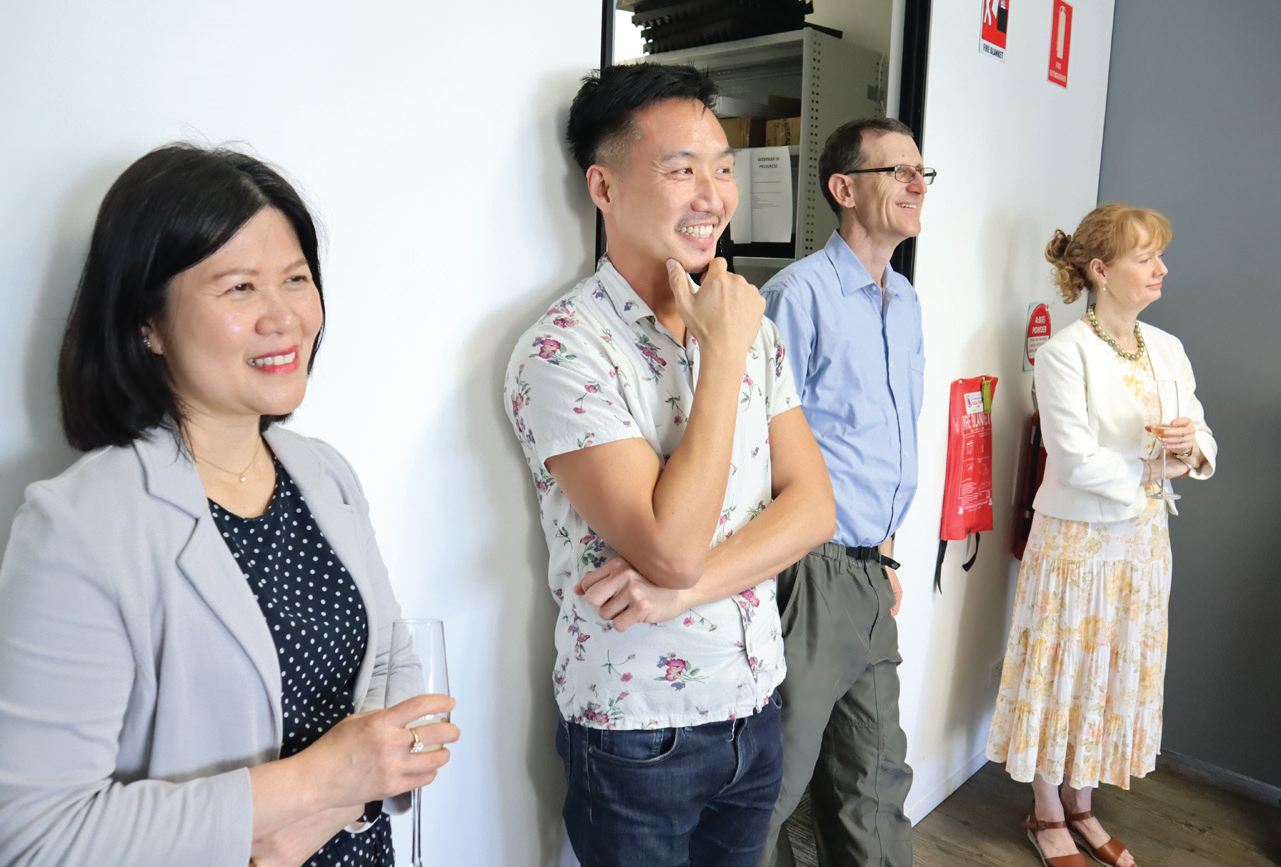LearnXLive 2023 Best Talented Team – GRC Solutions Content Team
GRC Solutions’ Content Development Team consists of researchers, writers, editors, sub-editors, instructional designers and lawyers, all based in Australia
We won three platinums and a diamond at LearnXLIve! 2023
See what else GRC Solutions won at LearnXLive 2023 here
PLATINUM FOR BEST TALENTED TEAM
This is our third year winning platinum for best team – see 2022 and 2021
Over the years, our content development team has expanded to include a tapestry of diverse skills and expertise. We have senior and junior lawyers, instructional designers with degrees in industrial design and graphic design, L&D consultants with a Master of eLearning and a degree in education, and writers and editors with backgrounds in journalism and publishing.
We believe that this creative tension between learning and legal expertise helps to give us an edge when it comes to making overly technical compliance concepts come to vivid life, and equips us with the means to facilitate learner comprehension using the right words and as few words as possible.
We challenged this team to create a psychosocial hazards course, and on the back of that the team won a Platinum Award at the 2023 LearnXLive awards
(This is a summary of the project – you can download the whole case study below.)
Psychosocial hazards training was a course that we had wanted to develop for some time. The national harmonised Work Health and Safety Act now places a special duty on employers for the health and safety of all workers. But everyone has a responsibility to address psychosocial hazards – any aspect of work that could cause psychological harm (whether or not it also causes physical harm). We had already updated our existing Work Health and Safety course to reflect the inclusion of psychosocial hazards.
But we believed that there was a further need to demystify the concept, elaborating on examples of psychosocial hazards and giving practical tips for preventing and managing hazards, all within a separate, short e-learning module.
Rather than confine the content to a narrow list of prescriptive instructions on what to do or not do, we wanted to convey the breadth of considerations that fall under the term ‘psychosocial hazard’ and give learners options for how to effectively manage the risks in their own working lives. Furthermore, we were keen to take care not to simplify the issue. And we did not want to trigger learners with discussion or visual representation of potentially sensitive topics.
Our Psychosocial Hazards course consists of five learning outcomes:
- The cost of psychosocial hazards
- What is a psychosocial hazard?
- Common psychosocial hazards
- Duty of employers to minimise or eliminate psychosocial hazards
- Risk management process
The Content Development Team successfully launched this course in July 2023. It rounds out our suite of work health and safety offerings, including our flagship course which covers the national harmonised law; our practical work health and safety course which explores ergonomics and other everyday safety issues; and our working from home series. The course was immediately made available to clients. This included an adaptive pre-test version that enables learners to demonstrate their knowledge of the concepts and bypass aspects of the lesson if they answer relevant questions upfront.
Psychosocial Hazards is the latest example of how our team brings their own purpose, passion and lived experiences to their craft, working to make technical concepts and abstract terms come alive through effective words and visuals.
The Talented Team
At GRC Solutions we believe that skills and expertise go beyond qualifications; they involve lived experience. And the diversity of lived experiences within our team helps us to approach training topics from different angles.
The diversity of lived experiences within our team helps us to approach training topics from different angles.
We are conscious, for example, that the experience of a team member who has worked with us for years and the experience of a team member who joined us during the COVID pandemic are both valid and invaluable in the development of compliance training about work health and safety. We believe that individual team members’ creative pursuits, hobbies and volunteering for various social causes can contribute to the way they understand and communicate key concepts in our training, including governance, risk and compliance.
In the past year, one team member who is an artist has exhibited paintings and sketches in Melbourne. Another served as a board member for the international LGBTQIA+ human rights event called Sydney WorldPride. Another is a pastoral youth care worker. These experiences help to shape the way we talk about and visualise the concept of safety in our work health and safety training. The team’s broad collective experiences broaden our own understanding of safety; we can appreciate not just the law on safety but also the practice of working safely, and we understand the interrelated concepts such as physical safety, psychological safety and cultural safety. We encourage robust, open and respectful discussion of different ideas, and treat the sharing of diverse perspectives about how to write and design compliance training as a means of doing due diligence on our training courses. In effect, even before we talk about psychological safety in our training, we seek to model it in our own work practices.
Imagine what this team can do for you!

